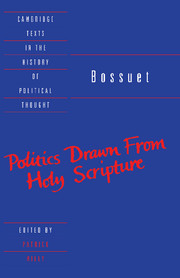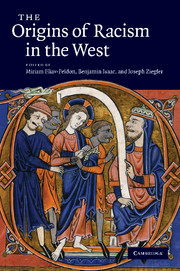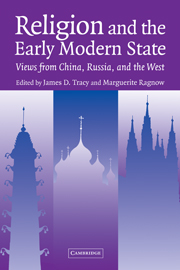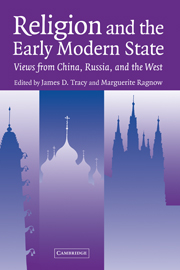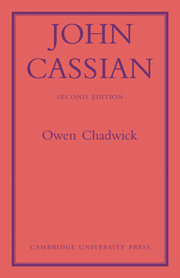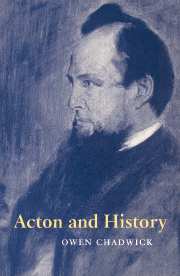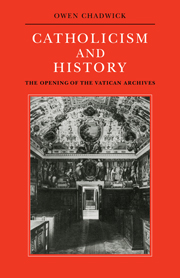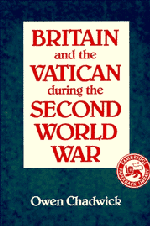From Bossuet to Newman
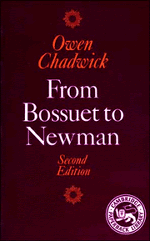
From Bossuet to Newman
$49.99
USDThe coming of modern historical research had religious consequences, especially in the more traditional churches to which history was very important and which themselves helped to create the historical sense. In this classic work, long unobtainable but now revised with a new introduction, Owen Chadwick traces the development of the notion that change in Christian doctrine was both possible and legitimate. Bossuet in the seventeenth century represented the opinion that Christian doctrine never or hardly changed: Newman in the second half of the nineteenth century saw that its expression necessarily changed in a changing society. This book shows how one opinion changed into the other, and explains the difficulties and tensions behind Newman's attempt to persuade an inherently conservative institution to face reality. In so doing it thus illuminates one vital aspect of the arrival into European thought of a distinct historical sensibility.
Product details
May 2012Adobe eBook Reader
9781139239974
0 pages
0kg
This ISBN is for an eBook version which is distributed on our behalf by a third party.
Often bought together
Often bought together
This title is available for institutional purchase via Cambridge Core
Learn more
Related Journals
Contemporary European History
: Journal
Contemporary European History covers the history of Eastern and Western Europe, including the United Kingdom, from 1918 to the present. By combining a wide geographical compass with a relatively short time span, the journal achieves both range and depth in its coverage. It is open to all forms of historical inquiry - including cultural, economic, international, political and social approaches - and welcomes comparative analysis. One issue per year explores a broad theme under the guidance of a guest editor. The journal regularly features contributions from scholars outside the Anglophone community and acts as a channel of communication between European historians throughout the continent and beyond it.
The Journal of Ecclesiastical History
: Journal
Since 1950 The Journal of Ecclesiastical History has published original research articles, scholarly reviews, review articles, notes and documents, relating to all aspects of the history of Christianity. The Journal's scope extends to cultural, institutional, intellectual, political, social and any other relevant form of history; to all periods from ancient to modern; and to all regions of the world. Contributors address detailed research questions as well as engaging with the wider issues in the field.
Studies in Church History
: Journal
NEW TO CAMBRIDGE IN 2016Studies in Church History is an annually published series comprising papers and communications delivered at the Ecclesiastical History Society’s conferences. Each volume presents important new work, by established as well as new scholars, on a particular theme. Volumes are available to members of the society at a reduced price. For more information about the new publishing arrangements for Studies in Church History, please click here.
Church History: Studies in Christianity and Culture
: Journal
This quarterly peer-reviewed journal publishes original research articles and book reviews covering all areas of the history of Christianity and its cultural contexts in all places and times, including its non-Western expressions. Specialists and historians of Christianity in general find Church History: Studies in Christianity and Culture, an international publication regularly cited all over the world, an invaluable resource.
Related Journals
Also by this Author
£39.99 GBP
$49.99 USD
$46.99 USD
$49.99 USD
Also by this Author
Table of Contents
- Abbreviations
- Preface to the first edition
- Introduction
- 1. 'Semper eadem'
- 2. Logical explanation
- 3. The Catholic critics
- 4. Progress in religion
- 5. Newman and the philosophy of evolution
- 6. Ward
- 7. Newman's theory
- 8. Newman and Rome
- 9. Epilogue
- Index.
- Owen Chadwick , University of Cambridge
Author
Browse by related subject
- African American history
- African history
- American history 1861-1900
- American history after 1945
- American history: general interest
- Atlantic history
- Australian history
- British history 1066-1450
- British history after 1450
- British history before 1066
- British history: general interest
- Colonial American history
- Cross-discipline history: general interest
- Diplomatic and international history
- Early republic and antebellum history
- East Asian history
- Economic history
- Environmental history
- European history 1000-1450
- European history 450-1000
- European history after 1450
- European history: general interest
- Gender history
- Global history
- Historical theory, historical method and historiography
- History after 1945 (general)
- History of ideas and intellectual history
- History of medicine
- History of native American peoples
- History of science and technology
- History of science: general interest
- Irish history
- Latin American history
- Middle East history
- Military history
- Regional and world history: general interest
- Regional history after 1500
- Regional history before 1500
- Russian and east European history
- Social and population history
- South Asian history
- South-east Asian history
- Twentieth century American history
- Twentieth century British history
- Twentieth century European history
- Twentieth century regional history

